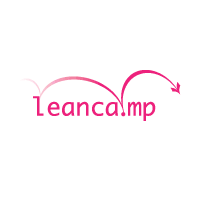When should branding become a concern for a startup?
Short version: Think of your brand as two parts: the customers' expectation at the core, and the surface elements that signal that expectation. Usually, it's less wasteful to get the expectation right first (through conversation and low-fi prototypes), then invest in the surface elements once the brand expectation, customer needs and business model are validated.Let's start with the big picture. Your brand will have value to your business if it gives you advantages in your customer and partner relationships, and sales/marketing channels. These advantages come from an expectation about you.
It's that expectation you need to figure out first, not the surface elements of the brand.Surface elements are signals. They can be the logo, other graphical signals like typeface and colour, or non-graphical elements like response-time, language, simplicity or wacky customer service personalities. They have value to the brand because they signal what to expect to the customer.
Crystallise those at the later stages, when you’ve got evidence that their needs are pressing and your business model will make you money. Usually this is when you’re getting ready to scale.
At this point, designing the surface elements should be straight-forward because they’re based on real customer experience, not guesses. Invest in surface elements too soon, and they’re wasted if you discover your brand’s core expectation needs to change.
 For example, the Leancamp logo took 20 minutes so we could get our first landing pages in front of real customers fast. We didn’t nail our core expectation until our second event.
For example, the Leancamp logo took 20 minutes so we could get our first landing pages in front of real customers fast. We didn’t nail our core expectation until our second event.

The Leancamp brand isn’t about pink logos, it’s about a fun, no-bullshit place to learn from other startup types. The logo and name and brand are only worth anything because we learned to set that expectation.
Once we learned this, we knew what to signal and strengthened the DIY, community feel in our graphics, copywriting and at the event itself.
If you think this is helpful, please upvote this answer on Quora.
Books & collected practices
- Peer Learning Is - a broad look at peer learning around the world, with a focus on practical program design
- Mentor Impact - researched the practices used by the startup mentors that really make a difference
- Decision Hacks - early-stage startup decisions distilled
- Source Institute - open peer learning formats and ops guides, and our internal guide on decentralised teams
Blog posts
Samo Aleko (2024)
Don't miss The Floop (2024)
Some kind of parent (2024)
Retreats for remote teams (2023)
What do you need right now? (2023)
Building ecosystems with grant programs (2021)
Safe spaces make for better learning (2021)
Choose happiness (2021)
Working 'Remote' after 10 years (2020)
Emotional Vocabulary (2020)
Project portfolios (2020)
Expectations (2019)
Amperage - the inconvenient truth about energy for Africa's off-grid. (2018)
The history Of Lean Startup (2016)
Get your loved ones off Facebook (2015)
Entrepreneurship is craft (2014)